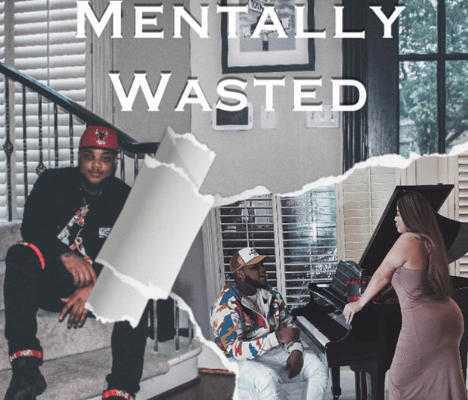Manuel Sanchez’s interview with A&R Factory explores into his profound connection with music. His narrative begins with the discovery of this deep-seated passion and traces through his scholarship at Berklee College of Music which marked a pivotal point in his artistic life. His artistic arc showcases an unyielding adherence to personal authenticity, a theme consistent throughout his career and particularly evident during the Berklee audition where he presented an original piece.
The interview touches upon the challenges and cultural shifts Sanchez faced, from moving to Boston to establishing himself in the competitive Los Angeles music scene. His role at Igloo Music, alongside his transition into producing his own music, highlights his evolution and the various facets of his musical and professional identity.
Manuel Sanchez, welcome to A&R Factory! It’s a pleasure to sit down with you and discuss your storied career as an audio engineer and musician. To start, can you take us back to the moment when you discovered your passion for music?
My passion for music began when I was just 9 years old and started taking guitar lessons. From the very first moment, I felt a deep connection with music. Despite my limited knowledge of music theory at the time, I always found a way to express myself through it, creating original pieces from the moment I started playing. This drive to express myself inspired me to continue studying, striving to improve and communicate my emotions even more effectively through music.
Earning a scholarship to Berklee College of Music is no small feat. How did the scholarship shape your approach to music?
When I received the scholarship, I felt vindicated—it reaffirmed my belief in trusting myself and in what music truly meant to me. Many people don’t know this, but I wasn’t accepted into one of the universities I applied to in Colombia. Their requirements were very strict; to be accepted, I had to perform a prepared piece that demonstrated technical ability in a specific genre—Jazz—which I wasn’t very familiar with at the time. As a result, I felt like I wasn’t good enough.
However, for my Berklee audition, I decided to stay true to myself. I played an original piece with a full band because I wanted to show the jury what music truly meant to me: a way to express myself. When I received the scholarship, I knew that trusting my vision and passion had been the right choice. Years later, I had the opportunity to meet one of the jury members from that audition, and she told me it was one of the best auditions she had ever seen. No one else had the idea, nor the boldness, to bring a full band into an audition to play an original piece.
How much of a culture shock was it to move from Bogotá to Boston for your scholarship?
Arriving in Boston was a big shock. Not only because I had to learn a whole new language but because It was the first time I was living by myself. The culture was different, the food, the weather. In Colombia, we don’t have winter so being -26°C (-14.8°F) is a challenge for me. But Berklee was an amazing place to start over. I had many friends that were international students as well and we all supported one another. It was very interesting to me how so many people from so many different countries could just get together and become friends. It really showed me that humans have the ability to get along no matter how different we think we are.
You have successfully integrated into the LA music scene, a pipedream for most, what has been your experience of the industry in LA?
LA can be a really tough city at first. I felt more lonely and stressed moving to LA than I did moving to Boston from another country. When I arrived in LA, I was on my own, without a car or a stable job. I took on numerous internships while working, and eventually, I found a place where I could grow.
Your work at Igloo Music, alongside industry giants like Gustavo Borner, has been a pivotal part of your journey. What have been some of the most impactful experiences working there?
Definitely, learning from more experienced people has been invaluable. Even though they were often busy with many responsibilities, they were always willing to help and teach. And then there’s the importance of making mistakes and improving from them. Don’t be afraid to fail—every failure is an opportunity to learn and grow.
You’ve contributed to over 100 projects, including high-profile productions like Money Heist: Korea and The Glory. Out of all these projects, which one do you feel was the most challenging or rewarding, and why?
One of the most challenging projects I worked on was Who Killed Him? for Amazon. This project was particularly demanding because it centered heavily on the actors’ incredible performances and artistic vision. We had to ensure that we preserved and enhanced the original intent, staying true to the creative direction while bringing out the best in every detail.
Your career spans various roles in audio engineering, from mixing to recording and dubbing. How do you approach each of these roles differently, and what do you enjoy most about the diversity in your work?
Being able to switch between different roles is something I’m very grateful for. Every time I spend a long time recording, for example, it’s nice to be able to transition to a different aspect of my profession and continue being creative. Each role is like a different hat or character I need to play, and with experience, you can switch between them more organically.
You’re on the verge of releasing your first single and have several exciting projects on the horizon. Can you share a bit about what we can expect from your music and these upcoming ventures?
I’m thrilled to finally release my music project. These songs have been in the making for years—some for over five years—so they’re deeply connected to my journey. They represent how I’ve perceived and experienced my path and evolution throughout this time.
Your story is one of perseverance, talent, and an unwavering commitment to your craft. For those who aspire to follow a similar path in music and audio engineering, what advice would you offer based on your experiences?
I advise staying true to who you are and what you genuinely want. Don’t be afraid to take risks and demonstrate your desire to grow and learn. Nowadays, society is like a loud playground where it’s easy to get lost. So take the time to focus on your inner voice and truly listen to what your heart wants. Be grateful for what you’ve achieved, as that gratitude will give you the strength and courage to keep moving forward.
–
Discover more about Manuel Sanchez via his official website.
Interview by Amelia Vandergast





No Comments